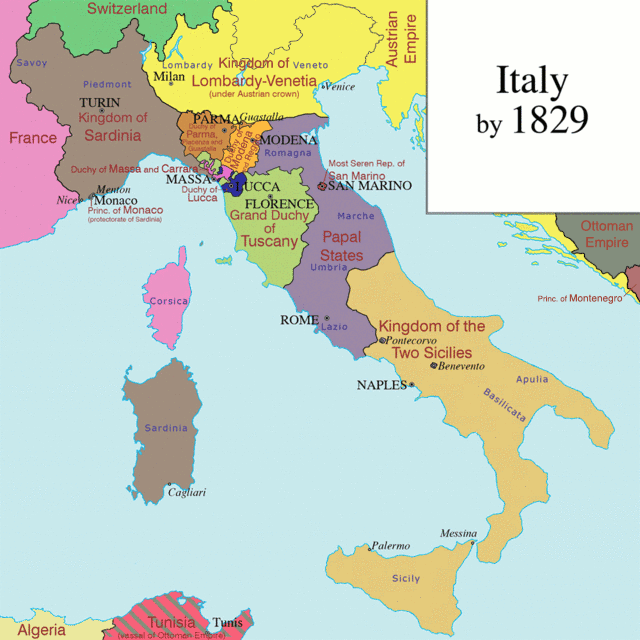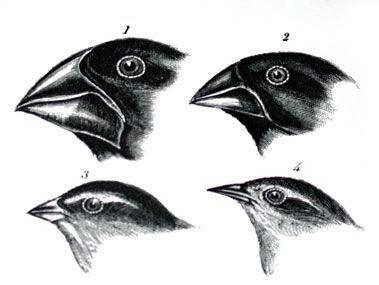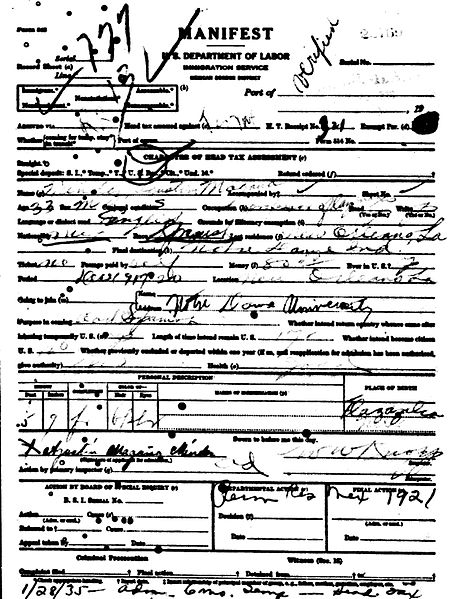PART ONE
We begin with a novel invention: the Nation-State!
What does it mean to say that we are at a critical juncture in history? And if we are at this point, how can we study it while we are literally living in it?
Over the past couple centuries, multiple populations grew accustomed to living in the era of the Modern Nation-State. In this opening section of our course, I shall outline the defining aspects of this unique human invention. I shall also outline the characteristics of the particular expression of this state that most of us have experienced throughout our lives and from which we have profited immensely: Liberal Democracy. I will draw a connection between two perspectives we all share in common: “modernity” and “liberalism.” At this early point in the semester, we will deal with several abstract concepts, or “ideal types.” In the coming weeks, these abstractions will become real to you when we explore the origins and evolution of a distinct type of state: the Liberal Nation-State.
My personal guarantee: By the end of this course, you will see how my abstractions fit together into one dynamic story. You should also have a sense for what it means to live in a time of radical uncertainty.
I am telling a story with no clear ending. This is a good academic story. More importantly, it is your story, too.
To get us moving, I have created a reading assignment for your first discussion section this Friday. See below.
1. LECTURE: Wednesday, January 18
Reflections on the making of the Modern Nation-State and the indeterminate nature of human activity.
Today’s Assumption: The Modern Nation-State is distinguished by the underlying idea that one can bring together different peoples and contending identities under the rubric of a common community. This state form represents a novel way of organizing human beings.
Nation-states as we understand them didn’t exist until roughly the 18th century. The emergence was slow, unpredictable, and always violent. For example, one can’t legitimately speak of the emergence of a “Germany” or an “Italy” until the second half of the 19th century. Many people died fighting against them, and even after they were formed, they were unhappy nation-states for a long time.

To be clear, not all states are Nation-States. And, not all peoples want to live together. Consider the tragic consequences of our failed experiment in nation-building in in a place that is not a nation-state—Afghanistan. If only our politicians had been better historians, they would have better understood what they were getting into. And then, we would appreciate our contribution to the devastating circumstances that we left behind. This is not to say that we didn’t do good things. It is simply to say that we–and especially we Americans–should have understood what it means to attempt to impose one model of political organization on another.
To understand the origins of the nation-state, it is important to reflect upon the nature of political change. Watch the video about natural evolution below and reflect upon how it gives us insight into the uniqueness of the nation-state.

The nature of historical change as seen by a paleontologist. A fabulous thinker, Steven Jay Gould, offers an approach to studying fundamental change that I find totally convincing—evolutionary theory. Watch at least the first 6 minutes of this stimulating video: WATCH As you listen to Gould, ask yourself how his arguments about both human evolution, “punctuated equilibrium” (what does this concept mean?), and the extinction of dinosaurs can be applied to the evolution of political ideas and institutions.
Are we currently living in a state of punctuated equilibrium? I think so.
Look ahead to your Friday discussion section. You have a paragraph assignment.
2. DISCUSSION SECTION: Friday, January 20
This discussion section is about the implications of living in a modern nation-state. It will also relate to Monday’s lecture about a particular form of modern politics–the liberal nation-state.
Today, we will discuss what it means to be a real American (or a real member of any political community).
How do we decide who is fit to belong in the United States? How do we decide who does not? Assuming you are an American citizen–and I realize that some you are not–how did you acquire this title? Should every American do more to reasonably be called a citizen? If so, what? Finally, how are Americans doing with those who becomes their fellow citizens?
If you are from another country, how easy is it to become a citizen in your home? Is it easier or harder than in the US?
Here’s a classic statement: Emma Lazarus, “The New Colossus,” a plaque on America’s Statue of Liberty: READ

Primary Reading #1: Samuel Huntington, “The Hispanic Challenge” (Foreign Policy): PRINT AND READ
Huntington was a preeminent political scientist. Note his incredible prediction on p. 14. This is an important and controversial article.
Primary Reading #2: Amanda Gorman, “The Hill We Climb”
You will need to read Gorman’s poem carefully since it doesn’t relate as directly to the question as Huntington’s article. But the implications are certainly there: Read, Print, and Listen
Finally, consider this: What is an American Car? READ Since I am asking you what a true American is, why on earth would I pose this question?
Optional Readings: You aren’t required to read them, but they will contribute to your understanding of the material.
Trigger Warning for Liberals! These readings come from conservative sites.
Edward Hudgins, “What is an American?” (the libertarian Cato Institute) HERE
“Alan Dershowitz, “Birthright Citizenship is Bizarre” (the Alt-Right Breitbart News) HERE
Here is your writing assignment: Write a one-paragraph (no more!) response to the following question: “What is the single, most important requirement for being a ‘true American’.” You may only choose one requirement. The point of your paragraph is to persuade the reader why it is the single, most important factor.
You should send your TA the one-paragraph response by 5:00 on Thursday. Your TA will provide you with instructions about how to send this as a Google document. This Thursday rule will be apply to the submission of assignments for all of our upcoming discussion sections. All of your paragraphs should be typed and double-spaced (12 point font). No handwriting.
Both your TA and I will be happy to talk with you about this assignment or any future assignments. Simply visit us.
3. LECTURE: Monday, January 23
Reflections on what it means for us to live in modern times.
Today’s Assumption: Whether we like it or not, we live in a modern society. By this statement, I mean that we share certain conceptions of truth and ideas about how to organize our lives. These ideas differ fundamentally from those held by other societies in the world, especially the most traditional societies.
Today, I will outline four essential characteristics of the “ideal-typical” modern world.
n essential part of being modern is agreement on facts. As a result of our capacity to reason, we pursue factual knowledge and build theories by using the scientific method (even though we don’t always recognize that this is what we are doing).
This is not to say that this approach to knowing is necessarily a good thing. Or that it represents all of the possible activities that are open to us. The acceptance of a factual claim (e.g., a heliocentric model of our solar system) does not prevent us from holding a religious faith (e.g., the existence of God). The believer’s faith in God may be just as true as factual knowledge. Indeed, a believer may justifiably regard his or her faith to be the quintessential expression of truth-seeking. Throughout much of its history, the Catholic Church has maintained that there is no contradiction between the acceptance of factual knowledge (reason) and faith—these truth claims are simply different forms of knowing.
Here are two articles that relate to my lecture. Ask yourself why they do.
Jen Christensen, “The Most Accurate Clock in the World is Redefining the Second” READ What can a mechanical clock tell you about the origins of a modern society?
lan Burdick, “Some Good News, and a Hard Truth about Science,” New York Times, November 18, 2018 READ
4. LECTURE: Wednesday, January 25
Today, I will lecture about a revolutionary political invention, the Liberal Nation-state. Liberalism is a specific set of principles according to which some human beings have organized their relations in modern times. However, it is not the only expression of modern politics. As we shall see later in this course, Fascism and Leninism are also forms of modern politics. As we look into the future , we can be sure that there will be seemingly self-evident political identities that are not liberal at all. In fact, we are wrestling with the defense of liberal political identities right now.
Today’s Assumption: We are all Liberals! However, this is no cause for alarm for political conservatives, at least not for traditionalists. In making this claim, I do not mean that we are all “liberals” in terms of our political affiliation. For example, moderate Democratic politicians and moderate Republican politicians alike adhere to classical liberal principles. They simply have different conceptions about how to solve concrete problems. Making concrete political decisions on a daily basis is necessarily complex—just like making good wine. Thus, it is reasonable to assume that that people and parties in a well-functioning political order will disagree about what constitutes good policy. As John Stuart Mill suggests, this is a good thing.
In contrast, when I use the term “liberal,” I am referring to classical liberalism, a conception of political order that was invented–not discovered–by people like John Locke, Adam Smith, and John Stuart Mill.
Assignment: Read Chapter II, “On the Liberty of Thought and Discussion,” in John Stuart Mill, On Liberty (1869): PRINT AND READ
Then, listen to musician and philosopher Frank Zappa talk about freedom of speech HERE Do you agree with Zappa? If not, where should we draw the line between legitimate and illegitimate free speech in a Liberal society? Or should there be a dividing line at all?
Read ahead for the discussion readings and paragraph assignment for Friday.
Optional reading, which relates directly to the emergence of the US as a liberal nation-state:
Abraham Lincoln invents the liberal nation-state: HERE
5. DISCUSSION SECTION: Friday, January 27
American Democracy in Crisis. Should there be a limit to the exercise of free speech in a democracy?
Readings:
The Nazis march on Charlottesville in 2017. Consider these contrasting views on free speech:
Anthony Romero, ACLU Executive Director, “Equality, Justice and the First Amendment” PRINT AND READ
K-Sue Park, “The ACLU needs to rethink Free Speech” PRINT AND READ
Not at all a new issue: “Swastika war’ in Skokie” READ
One-Paragraph Assignment: Is there something about the exercise of free speech by Nazis that makes it deplorable and intolerable in a democracy, whereas anti-Nazi protest is defensible?
For this assignment, I do not want you to focus on what steps should be taken to prevent the exercise of free speech from threatening public order. That is a question of policy. Reasonable people can differ about how one should prevent violence. Rather, please think about the broader question: What kinds of speech are acceptable–or unacceptable–in a free, liberal-democratic society? Or should all forms of speech be allowed? Take Frank Zappa’s views into account.
